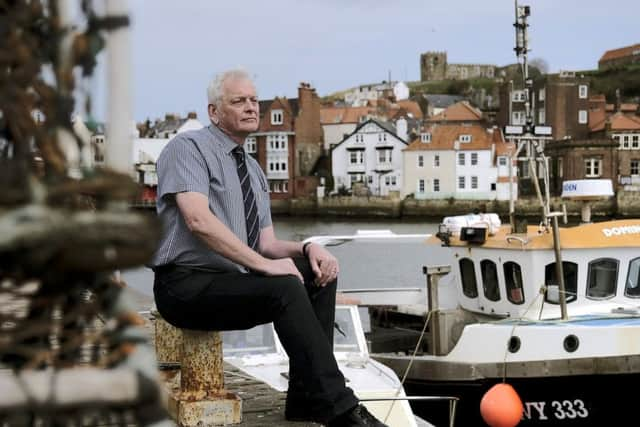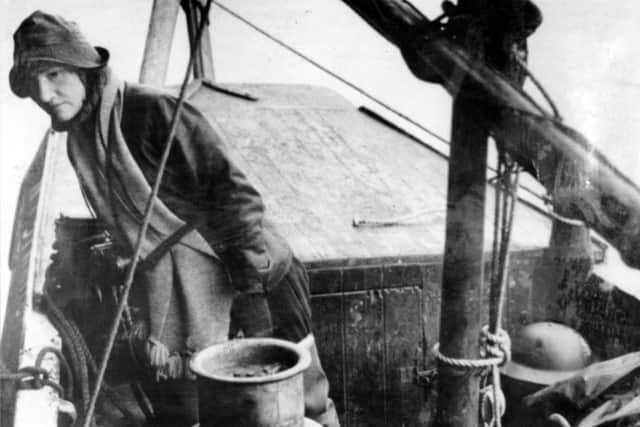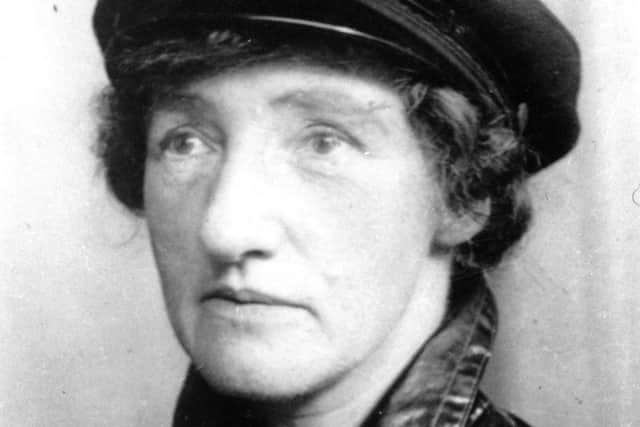Remarkable story of Whitby’s forgotten first lady of the waves
When she died in 1980, a sprightly 90, not one more person could have squeezed into the seamen’s mission at Whitby for her memorial service.
Yet now, the remarkable story of the port’s first female skipper is almost forgotten.
Advertisement
Hide AdAdvertisement
Hide Ad“She was one of our fishing heroes, but the modern generations don’t know her name,” said Dennis Buck, her eventual successor as fishing curator at the town museum.


“We thought it was time to remind everyone about her.”
Next month, hers will be the marquee name as Whitby celebrates its seafaring heritage at a weekend-long festival planned as the successor to last year’s 250th anniversary celebration of its greatest son, Captain James Cook.
But whereas Cook’s apprenticeship in the town is commemorated by a statue, Miss Walker’s legacy is largely hidden. An exhibition in her honour at the museum where in her later life she volunteered, may help remedy that.
The privately educated daughter of a blanket manufacturer in the West Riding mills, she was already a pioneer when in 1932 she arrived at the seaside on her doctor’s advice.


Advertisement
Hide AdAdvertisement
Hide AdShe had been, she said, only the 11th woman in Britain to hold a driving licence, and in 1912 had been one of the first to go up in an aeroplane. During the First World War, she defied a prohibition on nurses on the front line by working for a year at a Belgian hospital.
But the army’s male bias was mild compared to that she encountered in Whitby, when she decided she would like to own a boat there.
“It was probably as conservative a collection of men as you could find,” Mr Buck said. “A woman joining the fishing fleet as a skipper was unheard of, and there was open disapproval.”
Nevertheless, a local skipper called Bobby Harland took her out on his fishing coble and literally showed her the ropes.


Advertisement
Hide AdAdvertisement
Hide AdHer wages were an engine for Good Faith, the boat she was having built – the first powered coble in Whitby – for which she hired a male crewman. “He was the butt of many jokes, working for a woman, but he stuck with her and she continued to fish.” Mr Buck said.
“People called her Skipper Dora. We’ve got pictures of her during the Second World War, fishing out at sea with a revolver on a belt around her hip.”
When in the 1950s she eventually retired to the land, she published stories about her seafaring life, and though long off the shelves, there are hopes of securing a reprint.
“Dora is an important part of Whitby’s fishing history, and that’s what the festival next month is about,” Mr Buck said.
Advertisement
Hide AdAdvertisement
Hide Ad“Its heyday may have been in the 1930s to the 50s, but there is still quite a bit of fishing going on here, and it does no harm for people need to be reminded of it.”
• Fish and Ships, Whitby’s free festival of its seafaring heritage on May 18-19, will see 40 hours of live music performed on a marquee stage on the harbourside and at venues across the town.
The trawler Success III will be landing fish live at the dock, and the Fish Quay on Pier Road will see demonstrations of traditional skills by fishermen, fishmongers and chefs.
There is also an angling competition and a seafood kitchen with chef Brian Turner.